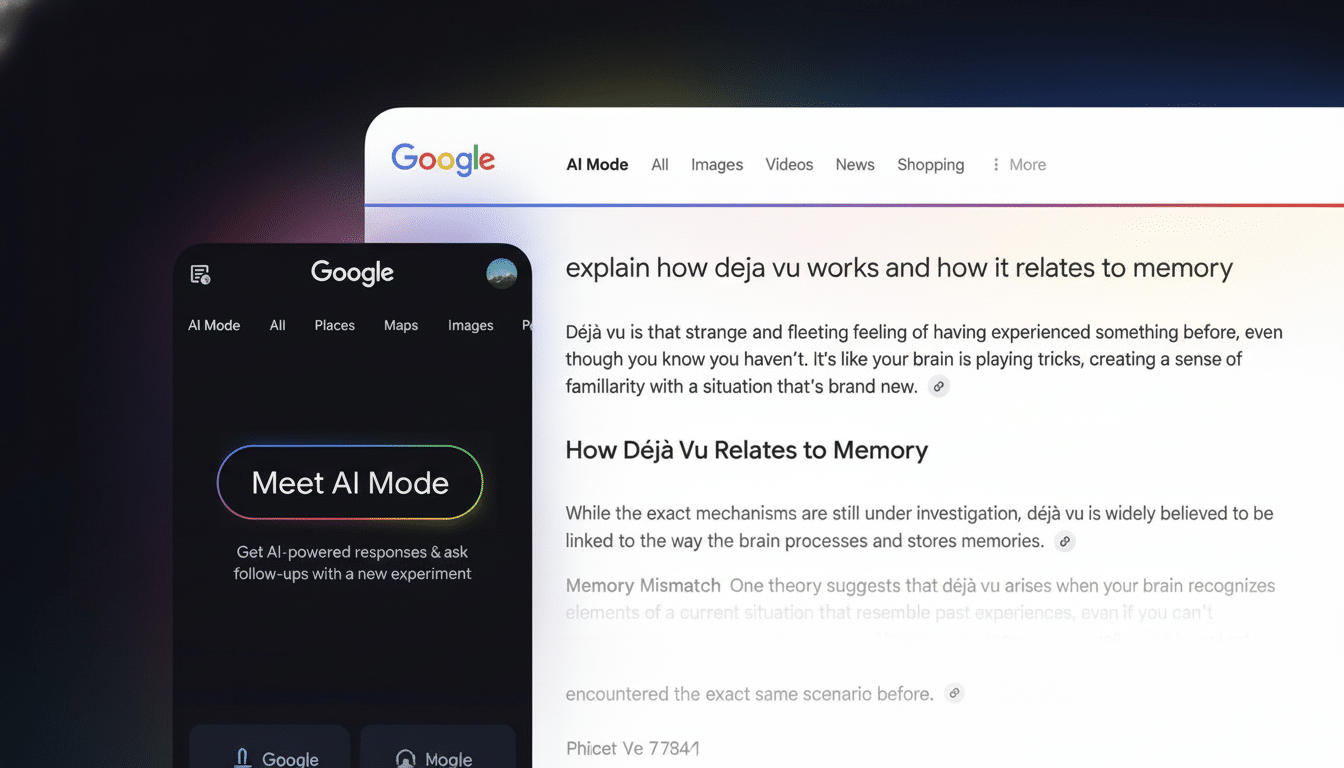Google is pushing its conversational assistant into action, not just answers. Now, the company’s AI-powered agentic experience inside Search is becoming more useful by supporting anyone looking to book a reservation at a restaurant using natural language. The feature, which had been a Labs experiment, is launching into general availability and aims to reduce the friction of needing to go back and forth between multiple apps or reservation platforms.
What to ask it to do when booking a table
The new feature takes care of both discovery and booking. You can make specific asks — “Get me a table for two at Bar Siena around 7 p.m. Saturday” — or have the AI suggest something based on more general criteria: “I need a vegetarian-friendly spot near downtown with late-night hours and outdoor seating.” AI Mode parses your preferences — say cuisine, neighborhood, hours, price range, and so on — then surfaces available reservation times you can grab with a couple of taps.
- What to ask it to do when booking a table
- Behind the scenes: how Google’s AI booking works
- From answers to agents: Google’s next step
- The diner keeps its privacy and control intact
- What it means for restaurants and platforms
- Flights and hotels are next for AI Mode bookings
- Availability and how to start using restaurant booking

That is meant to be applied in the rough-and-tumble of real life. If you’re dining with a group, you can select “table for six,” note dietary restrictions, or filter by vibes like “casual date-night” or “kid-friendly.” Even if your first option is sold out, AI Mode can recommend similar ideas with dates when you are able to find availability.
Behind the scenes: how Google’s AI booking works
Behind the scenes, Google is checking inventory against various reservation providers and routing you to a booking page to make sure everything lines up correctly. That retains the last handoff with platforms diners already frequent — think services like OpenTable and Resy — while saving you from having to flip through the search-and-filter routine across apps.
There’s nothing to turn on, and no new workflow to master. When the feature hits your account, you simply ask in natural language inside AI Mode. And because it’s tied into Google’s larger knowledge graph — business profiles, reviews, popular times, photos, and menus — the information can be put into real context. Google Maps, with its hundreds of millions of places around the world and over a billion people turning to it monthly, has decades’ worth of information about businesses to power that signal layer — making those suggestions feel like they weren’t just received, but read.
From answers to agents: Google’s next step
The move reflects a broader trend toward “agentic” AI, which can perform entire tasks from start to finish. Google has been leaning in this direction for years — from the initial Duplex demos that booked tables over the phone, to experiments that dealt with event tickets and appointments on the web. Making restaurant reservations available to all users turns that lineage into an everyday utility directly inside Search.
Competitively, where it lands is in the same place that consumers already go to decide where to eat: search results and maps. Between voice assistants and specific apps, we already can book a table on an individual basis, but the point here is aggregation and context. You can float a general question, have the options dialed in conversationally, then book without context-switching.
The diner keeps its privacy and control intact
Crucially, AI Mode connects you to the provider’s booking page for the inevitable confirmation stage; payment methods, loyalty accounts, and cancellation policies are therefore handled by the service or restaurant you opted for.

You hold onto the last click — AI Mode speeds up discovery and matches intent, but you sign off on the reservation details before anything is actionable.
If your plans do change, you’ll handle modifications through the same provider — exactly as if you’d booked on your own. That renders the feature additive (rather than a replacement) in nature, making its adoption smoother both for diners and restaurants.
What it means for restaurants and platforms
The visibility within AI Mode might matter in the restaurant context. Many independent restaurants and venues are discovered through Google’s search and map products; exposing real-time availability alongside reviews and photos can shorten the path from intent to seated guest. One also can imagine that reservation platforms would be among the biggest winners if AI Mode supplies more qualified traffic to their booking flows, especially during high-demand periods when inventory is churning.
The flip side of this is competition: when an assistant comes between the searcher and the booking page, ranking signals and data quality become even more important. The most up-to-date hours, menu details, and even inventory feeds will factor into which choice the assistant recommends first.
Flights and hotels are next for AI Mode bookings
Google says AI Mode will eventually include flight and hotel bookings as well. The trajectory seems a logical one — based on things like Google Flights and Hotels that already aggregate pricing, schedules, and filters en masse. Applying that same conversational, action-oriented approach to travel could further shorten the research and booking funnel — though the company hasn’t given any indication on timing.
Availability and how to start using restaurant booking
AI Mode adds restaurant booking, available to everyone. There is no beta to join, no switch to flip, and no script to memorize — just request what you want (time, party size, and preferences included), then confirm when there’s a match. Dinner, as it happens, is now one prompt away.

